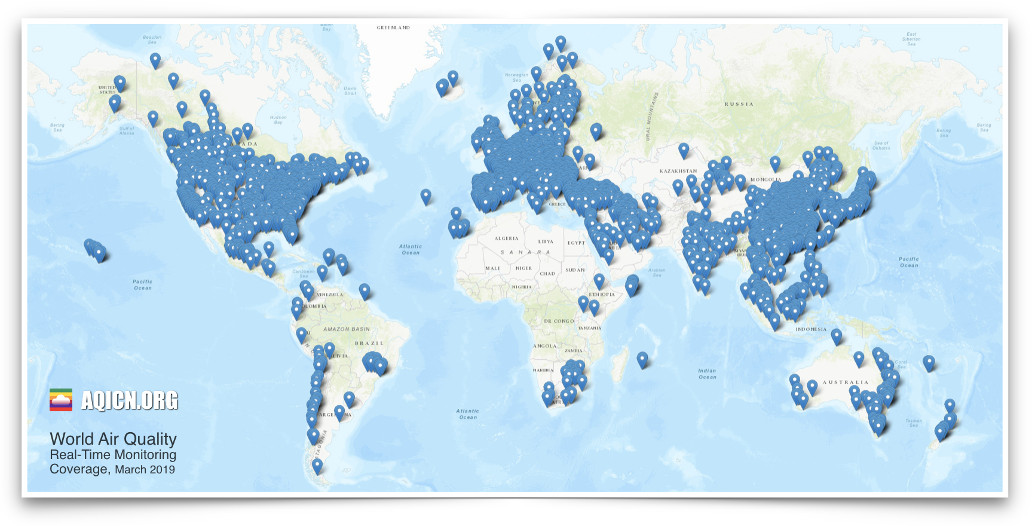
The project is providing transparent air quality information for more than 88 countries, covering more than 11,000 stations in 1000 major cities, via those two websites: aqicn.org and waqi.info.
The project, despite its social intent and expensive outreach, has never received any public funding. The limited income, essentially from online ads, is used to cover the infrastructure and hardware cost. Engineering work is contributed.
Loading contact form...
Due to our small team limited capacity we can not guarantee replying to all messages. Instead, please use the following dedicated contact pages:
You can also visit us on facebook.com or twitter.com
- If you are from an EPA or want to submit/update an air quality data feed, check the data feed page.
- If your country or city is not covered on the map, but you'd like to, check the new coverage page.
- If you want to contribute and help promoting air quality awareness, check the contribute page.
- If you want to setup your own air quality station, check the air quality sensor / monitoring page.
- If you need access to the air quality data from our map, check the API and/or data platform pages.
You can also visit us on facebook.com or twitter.com



